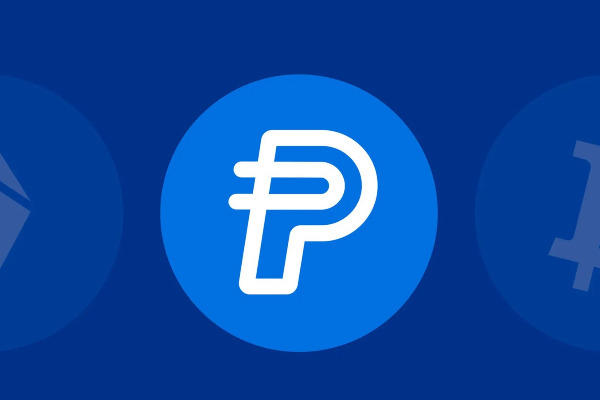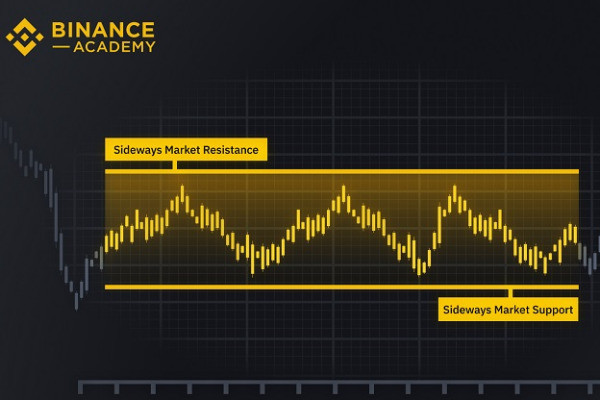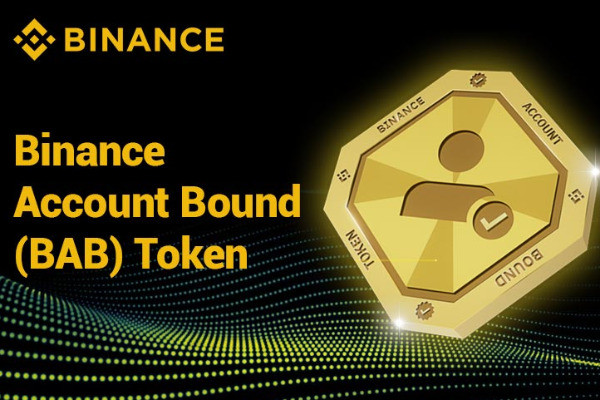As cryptocurrencies continue to evolve, so does the wallet that stores them. Here are the 5 best hardware wallets that support altcoins.

There are two main types of cryptocurrency wallets: hot wallets and cold wallets.
Hot wallets are connected to the internet, which makes them more vulnerable to hacking. Cold wallets are not connected to the internet, which makes them much more secure.
The best way to store your cryptocurrencies is in a cold wallet. Also called as hardware wallets, cold wallets are considered the most secure way to store cryptocurrencies. Hardware wallets are physical devices that store your private keys offline. This makes them very difficult for hackers to access.
Here are some of the best hardware wallets that can be used to store altcoins:
- Ledger Nano X
- Ledger Nano S
- Trezor
- Cobo Vault
- KeepKey
So, what are the features offered by each hardware wallet mentioned above? All of them will be discussed comprehensively in the review below.
1. Ledger Nano X
Ledger Nano X is the latest hardware wallet provided by a top crypto wallet company, Ledger. It supports many cryptocurrencies, has a high-resolution screen, and can directly interact with your smartphone for easy transactions. The wallet resembles a USB drive you can connect to your device via USB or Bluetooth. The Bluetooth feature is great because it lets you connect to your computer or other devices without a wire.
Though the device is cold storage (hardware crypto wallet), the company has made the Ledger Live software offering a user interface for all your holdings. As a result, you can add new wallets for different coins and directly manage your portfolio from there. The current price for Nano X is $119. One feature differentiating Nano X and its predecessor, Nano S, is that the former can hold multiple cryptocurrencies simultaneously. While in Nano S, users had to manually install and remove the apps to use a particular wallet.
According to Ledger's website, Ledger Nano X offers support to over 1,200 cryptocurrencies at the moment, with that number constantly expanding.
It supports cryptocurrencies such as:
- Ethereum
- Bcash (BCH)
- EOS
- Stellar
- Litecoin
- Monero
- Ripple (XRP)
- Tether
- Tron
- Cardano
- IOTA
- BNB
- Dash
- Neo, etc
Ledger Nano X is an excellent hardware security and mobility combination. While it can keep your coins safe, it provides the easiest access to your money without any issues.
2. Ledger Nano S
Ledger Nano S is a highly popular first-generation crypto wallet introduced by the Ledger team. Ledger Nano S is essentially the same as its successor, Ledger Nano X, but with fewer features. For instance, the Nano S does not come with a USB Type-C cable, so users with newer smartphones may have trouble connecting to their devices. Not only that, Nano S does not support Bluetooth connectivity, and it can only store up to 6 apps compared to the 100 that can be stored with Nano X.
According to Ledger's website, the Nano S and Nano X natively support 1,000+ coins, including most of the major coins and any ERC20 token:
- Bcash (BCH)
- BNB (BNB)
- Cardano (ADA)
- Dash
- Dogecoin
- EOS
- Ethereum
- Ethereum Classic
- Litecoin
- Monero
- Ripple (XRP)
- Stellar
- Tether (USDT)
- Tron (TRX)
- Vertcoin
- Zcash, etc
Nevertheless, Nano S is still a great choice. It has a sleek and attractive design and strong protections for your tokens. Some of its core features are the backup seed key for recovery, the user-friendly OLED interface, and a flash drive with two buttons on the side for navigating the interface. You can connect this battery-less device to your computer or other devices via USB. Besides that, it also has full support for BIP39 seed phrases, which convert your private key into a PIN and a 24-word phrase for ease of backup should you lose or damage your hardware wallet.
Overall, Nano S is a great option for those looking to store their cryptocurrency for a fair price safely. With only $59, you can purchase this wallet and enjoy its simple yet useful features. While Nano S is not as advanced as its bigger sibling, it's still undoubtedly one of the best hardware wallets to choose.
3. Trezor
Trezor is the pioneer in hardware wallets, so its popularity is beyond question. Created by SatoshiLabs, Trezor is one of the safest crypto wallets, supporting over 1,000 cryptocurrencies, including Bitcoin and altcoins.
The list of some of the most popular altcoins are following:
- BNB (BNB)
- Cardano (ADA)
- Tether (USDT)
- USDC
- Dash
- Dogecoin
- Polygon
- Ethereum
- Ethereum Classic
- Litecoin
- Monero
- Ripple (XRP)
- Stellar, etc
If we look at the shape and size, Trezor looks like a small calculator with an OLED screen. Trezor Model T – the second generation that they have created – uses a touch screen, which can be easier to use for newbies compared to the buttoned model that they previously use. Another nice feature is a quick and easy setup; it only requires three simple steps.
Furthermore, Trezor Model T offers easy access to third-party exchanges such as Changelly and Coinswitch. Like the Ledger Nano X, Trezor also has a USB Type-C cable option to connect it with your computer or other devices. You can use the Trezor wallet with your Android device or apps such as Mycelium, Multibit HD, etc. It also has a MicroSD card slot that allows you to encrypt your PIN for further safety. While all of those features are quite convenient, you should note that this model's price is $181.
If you want a cheaper product with similar benefits, try Trezor One. This is a cut-down, simpler version of the Trezor Model T that is much more affordable. Naturally, it lacks several features compared to Model T; it doesn't have a colorful touch screen and doesn't support as many cryptocurrencies. However, it still gets regular updates and can provide high security. Conveniently, you can buy a three-pack of Trezor One for backups.
See Also:
4. Cobo Vault
Typically, hardware wallets are designed as simple USB-like devices that are easy to carry and use. However, this isn't particularly the characteristic that Cobo Vault is trying to offer. In contrast, Cobo Vault has a relatively bigger size with a strong build and high-quality material. It appears that this wallet does not only offer high security for your funds but also protection against physical damage to the actual device from the rigors of everyday use.
The best thing about it is that Cobo Vault eliminates every possible hacking scenario, making the device extremely safe. For example, the device is completely air-gapped with no WiFi, Bluetooth, NFC, or Bandwidth capabilities, so there is no chance of hacking it over the network.
Unlike other modern portable hardware wallets, you won't have to connect the Cobo Vault wallet to another device to make transactions. This is why Cobo Vault has no USB port and only accepts QR codes.
All in all, Cobo Vault probably offers the highest security possible for your crypto. It even matches the US military standard MIL-STD-810G with an IP68 waterproof rating and IK9 certification, which means it can survive in various damaging scenarios. It also supports 11 cryptocurrencies, including:
- Ethereum (ETH) and ERC20 assets
- Dash
- Litecoin (LTC)
- Ethereum Classic (ETC)
- Tron (TRX)
- EOS
- Tether (USDT)
- Ripple (XRP)
- Decred (DCR)
- Zcoin (XZC)
5. KeepKey
KeepKey is another top hardware wallet that provides easy access to your coins with high security. Design-wise, KeepKey has a relatively bigger size than Ledger and Trezor, so it may be hard to carry in your pocket. But remember that the wallet is designed to hold many crypto coins, so there's a low chance that people would want to carry it around anyway. Yet, KeepKey is a bit behind compared to its competitors as it only supports 40 cryptocurrencies, are following:
- Ethereum
- Bitcoin Cash
- Bitcoin Gold
- Dash
- Dogecoin
- Litecoin
- plus, over 30 more ERC20 tokens
But other than that, the wallet offers more or less similar features, such as a backup seed key feature with PIN codes and 2nd screen protection, which protects them from keystroke spying. Initially, KeepKey was sold at quite a high price ($239). But since, the company has decided to lower the price to make it more affordable and competitive. You can now purchase the device for $99.
Unlike Ledger and Trezor, KeepKey may seem to lack several things and fall slightly behind. However, the affordable price and nice design make KeepKey still worth buying.
What to Consider
Before choosing which wallet to use, you must consider the following things:
- Reliable Manufacturer – While a hardware wallet can provide extra safety, ensuring that a reputable company makes your wallet with a track record of delivering secure and safe products is still important. Otherwise, there's a higher chance of hardware defects or other technical issues.
- Price – Typically, this is the first thing most users consider. Though price should not be the only factor to consider, it's still crucial to calculate the hardware's worth. So instead of choosing the cheapest option, it's better to pick the one with an affordable price and high-quality features.
- Durability – Some products are cheaper but have low durability. This isn't good because if your device constantly breaks, you will have to replace it again, which only adds extra costs and is time-consuming. Thus, it's best to choose wallets that will last.
- Ease of Use – whether you're a beginner or an expert, it's best to pick a user-friendly wallet. You would want to make transactions safe and as fast as possible, so make sure it has a good setup and is generally easy to use.
Using Hardware Wallets the Right Way
To use a hardware wallet, you must first create a backup of your seed phrase. This series of words can be used to restore your wallet if it is lost or damaged. Once you have created your backup, you can connect your hardware wallet to your computer and send and receive cryptocurrency.
Here are some additional tips for using a hardware wallet:
- Keep your hardware wallet in a safe place.
- Do not share your seed phrase with anyone.
- Update your hardware wallet's firmware regularly.
- Be aware of phishing scams.
- By following these tips, you can help to keep your cryptocurrency safe and secure.
Here are some additional concerns that you should know before using a hardware wallet:
- You will lose access to your cryptocurrency if you forget or misplace your seed phrase.
- There is always a possibility that the hardware wallet may be defective or damaged.
- That is why it is very crucial only to buy hardware wallets from trusted and credible manufacturers.
Final Words
If you're worried about security in crypto trading, use hardware wallets to store your coins. They provide the highest level of protection for long-term storage and keep your funds safe. Hardware wallets are stored offline and can only be opened with your private keys, adding extra security. Spending an extra $100 for this protection is worth it when dealing with large amounts of cryptocurrency.
When choosing a hardware wallet, consider what you prefer. Some have USB cables, while others use Bluetooth. Make sure the wallet meets your needs. For beginners, the recommended options are Trezor Model T and Ledger Nano X. They support over 1,000 digital coins and are popular. If you want a simpler yet secure wallet, go for Cobo Vault.
Remember, hardware wallets are very secure and exclusive. It would be best to have a specific device and private keys to access your coins. Keep in mind that losing access can be problematic. If you lose or damage the device, you can restore your wallet, but forgetting your keys or seed phrase becomes more complicated. Have a backup plan, like another hardware wallet or writing your private keys on paper and storing them safely.
Aside from using hardware wallets, there are other ways to secure your crypto assets properly. Learn further in Effective Ways to Secure Your Crypto Account.

 Dedicated FREE FOREX VPS
Dedicated FREE FOREX VPS Free FOREX Virtual Private Server
Free FOREX Virtual Private Server MT4 Demo Contest, Get $500
MT4 Demo Contest, Get $500 Sign Up for an Account, Claim 60% Deposit Bonus
Sign Up for an Account, Claim 60% Deposit Bonus Free MT4/MT5 VPS 2024
Free MT4/MT5 VPS 2024 Send E-mail and Get Free Merchandise
Send E-mail and Get Free Merchandise $1K Refer a Friend Bonus for Pepperstone Pro clients
$1K Refer a Friend Bonus for Pepperstone Pro clients Maximize Your Earnings with 100% Deposit bonus
Maximize Your Earnings with 100% Deposit bonus Trade to Win, $5,000 Monthly Demo Contest
Trade to Win, $5,000 Monthly Demo Contest Claim 30% + 15% Deposit Bonus from LiteFinance
Claim 30% + 15% Deposit Bonus from LiteFinance






 Bitcoin
Bitcoin Ethereum
Ethereum Tether
Tether BNB
BNB Solana
Solana USDC
USDC XRP
XRP Dogecoin
Dogecoin Toncoin
Toncoin Cardano
Cardano